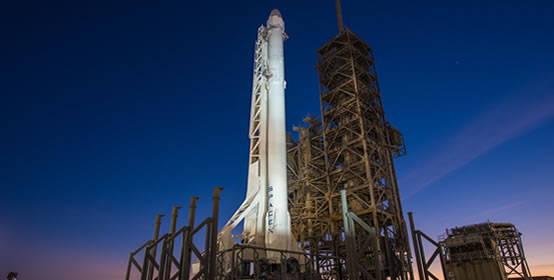
Space exploration programs in the U.S. and around the world have experienced a resurgence in recent years. After a decade or more of stagnancy and disinterest from the public, these programs are now ramping up and preparing to delve into the depths of space that have yet to be discovered. Recent scientific and political advancements as well as increased funding could soon have an impact on the near future of space exploration.
President Trump recently announced that he plans to increase funding to the U.S. space exploration program. He intends to streamline the paperwork that both private companies and government agencies must submit before launching exploration programs. He also plans to increase funding to these programs with the intent of sending another astronaut to the moon before he leaves the Oval Office.
His improvements to the space exploration programs are the first in more than 20 years. The last time this amount of funding and publicity were given to space exploration was in 1989 when George H.W. Bush was in office.
Another possibility that could shape the future of space exploration around the world involves the privatization of these programs. More people no longer see a great need for government-based programs like NASA. Instead, they say that private companies like those founded by Elon Musk have the ability to further space exploration on their own.
Further, they say that privatization of space exploration could have the potential to:
Private space exploration companies continue to be created and expanded with the hopes of joining or possibly even surpassing NASA in making new discoveries about the depths of outer space.
Since the landing of robots on the surface of Mars, astronauts and scientists have been fascinated about what is waiting to be discovered on the red planet. Attempts to send humans to Mars continue in earnest. The near future of space exploration in the U.S. and around the world could soon see a manned launch to this planet in the hopes of establishing a colony on it.
Until then, scientists at least hope to obtain and send back rocks from Mars. The rocks that they hope to soon get could reveal much about life on the planet. They also could reveal whether or not Mars once sustained life or if it has the possibility of doing so again in the future.
The U.S. is not the only country with its sights set on increased space exploration. European countries including France and Belgium also are joining in the race to explore outer space.
In fact, the European Service Module is making improvements to its program so that it can contribute to NASA's Orion spacecraft. It also hopes to send astronauts to the International Space Station and contribute to the lunar gateway program that is already underway. It likewise hopes to join in the exploration and colonization of Mars.
Keeping apace with the U.S. and its space exploration program, Dubai in the UAE announced recently that it is now funding 36 separate space exploration projects. These 36 projects were chosen among more than 200 from 55 different countries. They are being funded by the Mohammed bin Rashid Center for Accelerated Research.
Dubai hopes that these projects will not only benefit the UAE but also the entire world. Specifically, the country's space exploration leaders hope that this funding will lead to advancements of Dubai's Mars City and Mars 2117 projects.
The future of space exploration could impact the way that people live here on Earth. Countries from around the world are now ramping up their programs with the hopes of reaching the moon, Mars, and further into outer space. These advancements in part come from increased funding and the privatization of space exploration.